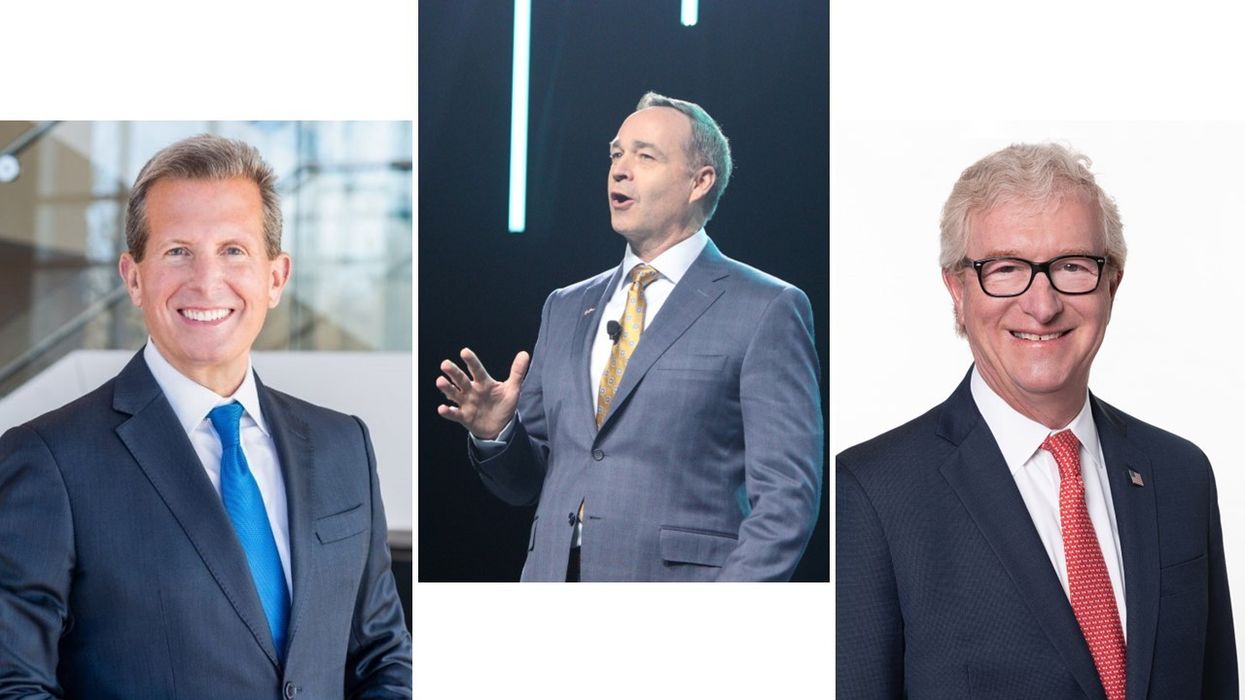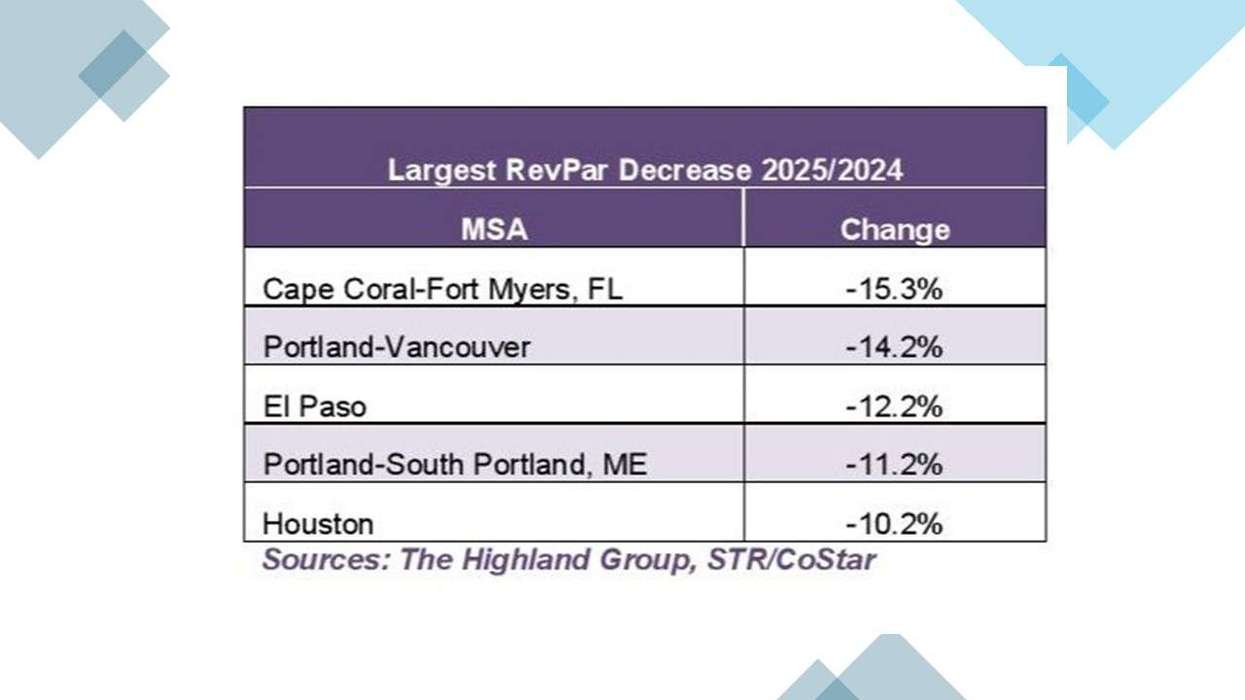THE FOURTH QUARTER/ full-year 2023 earnings calls for Choice Hotels International and Wyndham Hotels & Resorts became opportunities for both companies to exchange barbs over Choice’s proposed acquisition of Wyndham. Also, four state attorneys general are reportedly examining the proposed acquisition, possibly to begin their own investigations.
Wyndham’s board of directors has consistently declined Choice’s proposal, saying it faces regulatory challenges and undervalues Wyndham’s standalone worth. On Feb. 14, in Wyndham’s earnings call, Geoff Ballotti, the company’s president and CEO, mentioned the Choice proposal in his summation of the results that included record rooms growth.
“We are tremendously proud to report fourth quarter results that demonstrate the continued success of our global strategy and our accelerating momentum,” Ballotti said. “Despite the distraction, uncertainty and misperceptions caused by Choice and their slanted and constant communications to our franchisee base, room openings accelerated and our global development pipeline grew by 10 percent to an all-time high of 240,000 rooms.”
Choice vows to push for the deal
Choice also reported that strong results from 2023 in its earnings call on Feb. 20. The company’s total revenues grew 10 percent to $1.5 billion for 2023 compared to 2022, a record. Its net income was $258.5 million for 2023, a diluted EPS of $5.07. EBITDA for 2023 reached a company record of $540.5 million, 13 percent more than 2022 and higher than the top end of the company's guidance for last year.
Choice’s global pipeline as of Dec. 31 increased 6 percent to more than 105,000 rooms from Sept. 30. The global pipeline for conversion rooms increased by 16 percent from Sept. 30 and 34 percent from Dec. 31, 2022. Pat Pacious, Choice’s president and CEO, then said the results underscored the company’s readiness for the deal with Wyndham.
"Our demonstrated track record of improving the delivery of direct business to franchisees positions us to further accelerate value creation for all stakeholders through a compelling combination with Wyndham,” Pacious said. “We are confident we can create meaningful value for franchisees and shareholders of both companies. We are committed to pursuing this combination and remain encouraged by our progress on the regulatory front.”
Pacious also mentioned Choice’s nomination of eight nominees for Wyndham’s board of directors who will be voted on during Wyndham’s 2024 shareholders meeting.
“If elected, these nominees will exercise their independent judgment to serve Wyndham shareholders' best interests, which we continue to believe is to move with urgency to maximize the value that can be created through a combination with Choice," he said.
Later, Stephen Holmes, chairman of Wyndham’s board, responded to claims he said Pacious made during the earnings call that implied that Wyndham had “refused to engage” with Choice about the deal.
“Nothing is further from the truth. We have engaged. What we have not done is roll over,” Holmes said. “The truth is this: our Board connected with Choice and its advisors over 25 times since April 2023 including on some occasions at our initiative. We consistently, explicitly, and repeatedly explained the core issues Choice would need to address to make its proposed offer attractive, reasonably certain, and feasible for Wyndham and its shareholders. Despite our extensive and genuine engagement, Choice has addressed none of these issues. It has, instead, adopted this completely misleading tactic to divert attention away from its own unwillingness to address the realities.”
In its original proposal, made public in October, Choice said it sought to acquire all the outstanding shares of Wyndham at a price of $90 per share and shareholders would have received $49.50 in cash and 0.324 shares of Choice common stock for each Wyndham share they own. Choice claimed that is a 30 percent premium to Wyndham’s 30-day volume-weighted average closing price ending on Oct. 16, an 11 percent premium to Wyndham’s 52-week high, and a 30 percent premium to Wyndham’s latest closing price.
Wyndham’s board unanimously rejected Choice’s proposal, calling it unsolicited, “highly conditional” and not in the best interest of shareholders. On Nov. 14, however, Choice sent a letter to the Wyndham board with an “enhanced proposal” intended to address Wyndham’s concerns about clearing federal regulations. On Dec. 12, Choice launched its public exchange offer to acquire Wyndham and on Dec. 19 the Wyndham board officially rejected the offer and urged shareholders not to tender shares for the deal.
State AGs getting involved
According to Wyndham, state attorneys general in Colorado, Washington, Kansas and Vermont have begun their own investigations into the proposed acquisition. The Federal Trade Commission is already in the process of reviewing the deal.
“Each of [the attorneys general] have opened their own separate investigations with the power to investigate the transaction on their own timelines and with the power to seek to block the transaction in court independent of any decision by the FTC,” Wyndham said on its website about the acquisition.
State Antitrust Enforcement Act of 2022 limits ability of states to consolidate cases such as this, and usually states cooperate with the FTC and Department of Justice in antitrust investigations. Both companies have to give permission for the information they have submitted to the FTC regarding the acquisition to be shared with the AGs.
Requests for confirmation from three of the four AGs offices were not returned in time for this article. A spokesperson for the Washington State Attorney General’s Office said it was their policy not to comment on ongoing investigations, “including confirming whether or not they exist.”
There is precedent. On Feb. 14, Colorado Attorney General Phil Weiser announced he is suing to block a merger between the Kroger Co. and Albertsons Co. grocery store chains. Kroger announced in October its intention to purchase Albertsons for $24.6 billion. Kroger operates 148 stores in Colorado under the King Soopers and City Market banners and Albertsons operates 105 stores in the state under the Safeway and Albertsons banners. The companies expect to finalize the merger in early 2024 if it is approved by state and federal regulators.
According to Weiser’s office, the merger would “eliminate head-to-head competition between Kroger and Albertsons and consolidate an already heavily concentrated market, which is bad for Colorado shoppers, workers, and suppliers.”
“Coloradans are concerned about undue consolidation and its harmful impacts on consumers, workers, and suppliers,” Weiser said. “After 19 town halls across the state, I am convinced that Coloradans think this merger between the two supermarket chains would lead to stores closing, higher prices, fewer jobs, worse customer service, and less resilient supply chains.”






